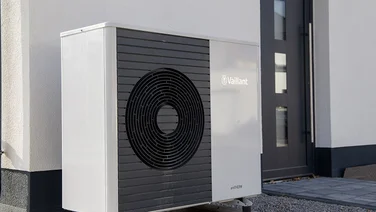Get Free Solar Panel Quotes
Find out how much solar panels would cost you
Do you need solar panels for your home or business?
Fill in our form - Get a free quote - Start saving on energy bills
Why get solar panels?
- Generate free, green electricity
- Reduce your electricity bill by up to 64%
- Get paid for what you don't use
As featured in:



News
The latest news, analysis, guides and opinion.

Kensa and Passiv UK to cut bills for heat pump owners
Heat pump manufacturer Kensa has partnered with Passiv UK to offer smart controls for ground source heat pumps.
-
 When is the ECO4 scheme being scrapped? The government has released its new ECO4 scheme, which will run until March 2026 – but what does it cover and are you eligible? Find out here.
When is the ECO4 scheme being scrapped? The government has released its new ECO4 scheme, which will run until March 2026 – but what does it cover and are you eligible? Find out here. -
 Will solar panels become more powerful? Global clean technology world invests heavily in perovskite solar cells in response to fears around energy security and costs
Will solar panels become more powerful? Global clean technology world invests heavily in perovskite solar cells in response to fears around energy security and costs -
 Everything you need to know about the Warm Homes Plan The Government's new Warm Homes Plan will increase funding for schemes like the Boiler Upgrade Scheme and help 300,000 homes in the UK.
Everything you need to know about the Warm Homes Plan The Government's new Warm Homes Plan will increase funding for schemes like the Boiler Upgrade Scheme and help 300,000 homes in the UK. -
 The 10 greenest countries in the world Ever wondered what the greenest countries in the world are? We take a look, using Yale University’s Environmental Performance Index
The 10 greenest countries in the world Ever wondered what the greenest countries in the world are? We take a look, using Yale University’s Environmental Performance Index -
 Heat pump sales set record in 2025 More than 125,000 heat pumps were sold in 2025, but is it enough to hit government targets?
Heat pump sales set record in 2025 More than 125,000 heat pumps were sold in 2025, but is it enough to hit government targets? -
 First residents move into London’s low-carbon neighbourhood London's ambitious low-carbon regeneration project will soon be home to its first 100 residents
First residents move into London’s low-carbon neighbourhood London's ambitious low-carbon regeneration project will soon be home to its first 100 residents -
 Škoda launches Epiq EV with 267 mile range Skoda announces its new EV will be on the UK market later this year.
Škoda launches Epiq EV with 267 mile range Skoda announces its new EV will be on the UK market later this year. -
 Energy bills to fall as government secures record amount of solar projects Offshore wind will lead to lower bills and more investment in the UK.
Energy bills to fall as government secures record amount of solar projects Offshore wind will lead to lower bills and more investment in the UK. -
 Government launches £1bn Local Homes Plan to cut energy bills Communities across the UK will be able to own and control their own clean energy projects, thanks to an up to £1bn funding as part of the Local Homes Plan, from the Department for Energy Security and Net Zero (DESNZ).
Government launches £1bn Local Homes Plan to cut energy bills Communities across the UK will be able to own and control their own clean energy projects, thanks to an up to £1bn funding as part of the Local Homes Plan, from the Department for Energy Security and Net Zero (DESNZ).

